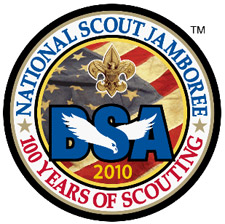Baylor’s ISR to conduct first-ever study of Scouting benefits
 One hundred years ago this week, Chicago publisher W.D. Boyce incorporated the Boy Scouts of America (BSA); a century later, over 110 million Boy Scouts across the U.S. have recited the Scout Oath (“On my honor, I will do my best to do my duty to God and my country…”). Countless famous Americans from the past 100 years have participated in Boy Scouts — names like Neil Armstrong, Walter Cronkite, Gerald Ford, Andy Griffith, John F. Kennedy, Ross Perot and Steven Spielberg.
One hundred years ago this week, Chicago publisher W.D. Boyce incorporated the Boy Scouts of America (BSA); a century later, over 110 million Boy Scouts across the U.S. have recited the Scout Oath (“On my honor, I will do my best to do my duty to God and my country…”). Countless famous Americans from the past 100 years have participated in Boy Scouts — names like Neil Armstrong, Walter Cronkite, Gerald Ford, Andy Griffith, John F. Kennedy, Ross Perot and Steven Spielberg.
Yet for all their history, no one has ever scientifically studied the impact of Scouting in fostering positive youth development. In other words, if a Scout truly is “trustworthy, loyal, helpful, friendly, courteous, kind, obedient, cheerful, thrifty, brave, clean and reverent,” as the Scout Law says, does that Scout stay that way as he grows up?
Baylor’s Institute for Studies of Religion (ISR) is tackling exactly that question, thanks to a two-year, nearly $1 million grant from the John Templeton Foundation. ISR co-directors Dr. Byron Johnson and Dr. Rodney Stark will lead the study, working with the Gallup Poll organization to see if scouts really have better-quality family lives, are better citizens, are more patriotic, etc., as anecdotal evidence would suggest.
“For decades, the Boy Scouts of America has used outcomes research to strengthen our programs and curriculum,” says Chief Scout Executive Robert Mazzuca. “The research produced by Baylor University is very important, and at this crucial time, we expect to learn a great deal from the research as we embark on our next 100 years.”
Sic ’em, Baylor researchers!

